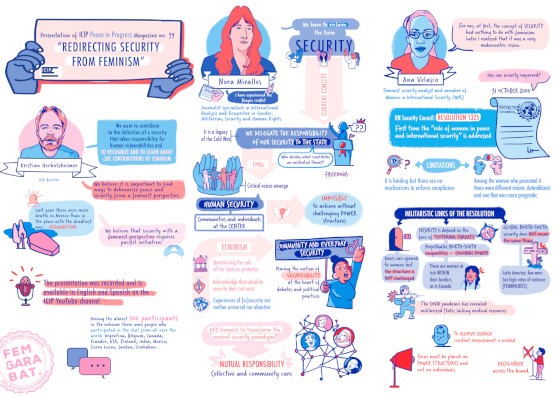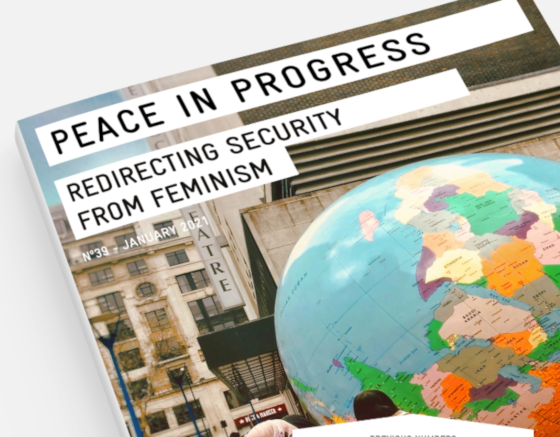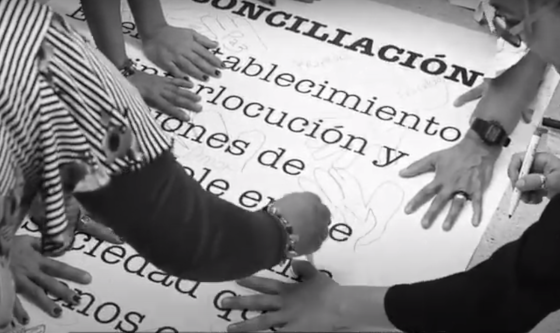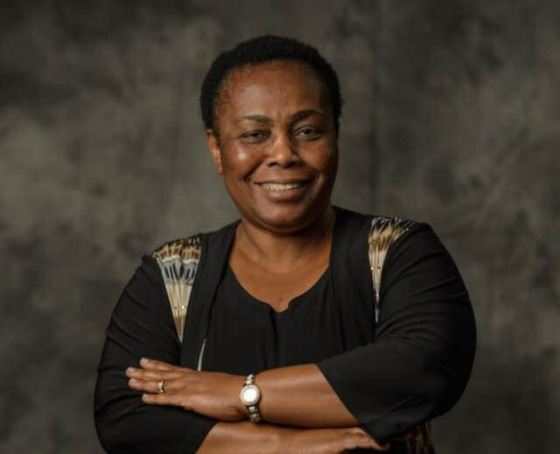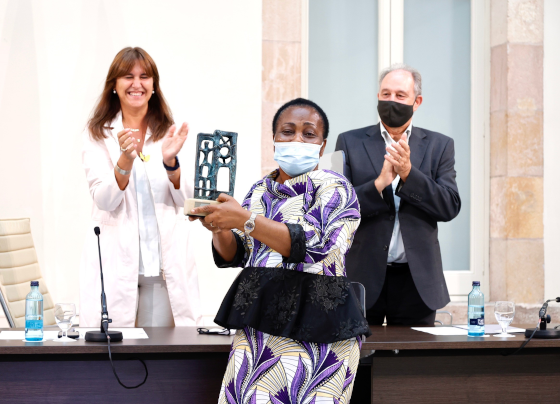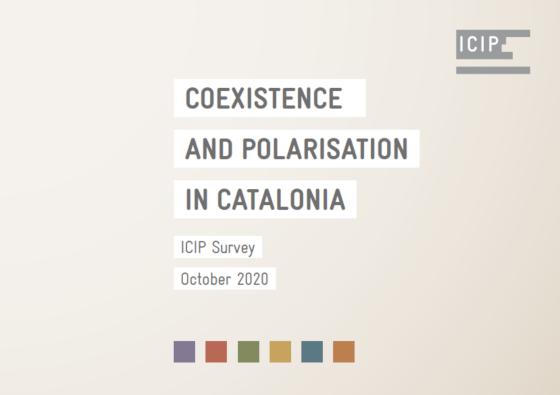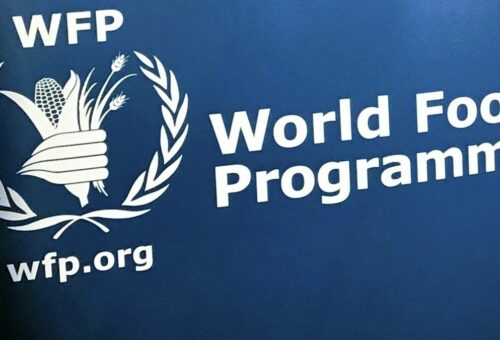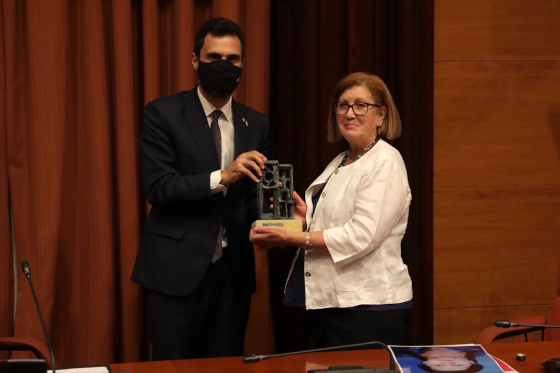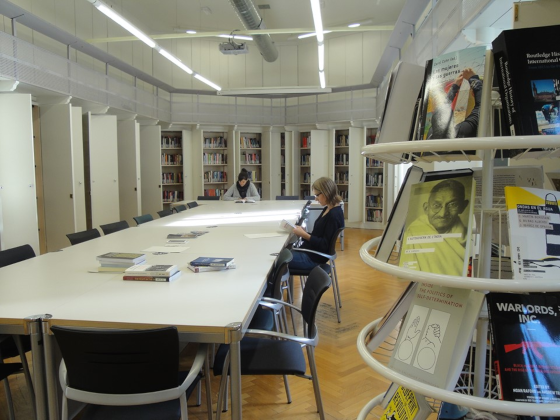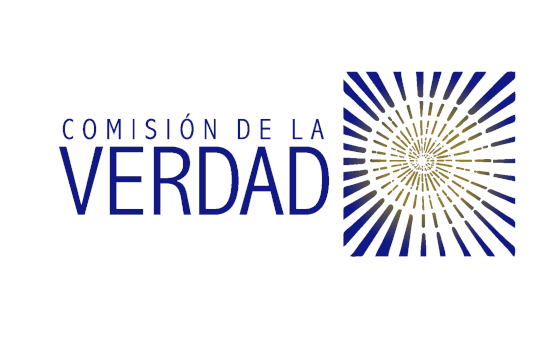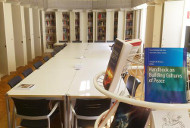The ICIP has presented the “Coexistence and polarization in Catalonia” ICIP 2020 Survey at a press conference given by ICIP director Kristian Herbolzheimer. The poll, coordinated by political scientist Berta Barbet, was conducted in July based on 2,010 online interviews, with the aim of assessing the perception of coexistence in Catalonia and the dynamics of polarization, accentuated by the current territorial conflict.
This is the first survey conducted in Catalonia that analyzes the emotional polarization of its citizens. The sample was segmented by sex (1,019 men and 991 women), age and geographical location.
The results of the survey show that the majority of the population values the level of coexistence in Catalonia positively. Specifically, 67 % consider coexistence in Catalonia to be good or very good, with an average score of 7.1 points on a scale of 10. This percentage increases to 76% when coexistence applies to the immediate surroundings (municipality or neighborhood), with an average score of 7.5 points. The levels of social trust are also positive, since the degree of trust of the Catalan population in the rest of the population (5.9) is higher than the levels in Spain as a whole (5.6) and the European average (5.5).
Ideological and emotional polarization
The survey analyzes the situation of ideological polarization in Catalonia based on various issues. The results indicate that the territorial conflict is currently the issue that generates the most polarization. Of the people surveyed, 44% fall into the two most extreme positions, while 17% are in an intermediate position; thus, there are three main blocks. This is not the situation perceived with respect to other topics dealt with: the economy, response to Covid-19, feminism, language use, social class and immigration.
The survey also indicates the perception that political parties and the media are much more polarized than society itself. Specifically, 43% of respondents believe that political parties are highly polarized, while only 11% believe that society in general is highly polarized.
In the case of the territorial conflict, it is the only issue in which ideological polarization has a certain impact on emotional polarization, linked to those people who feel that their way of life or their culture is threatened. Nevertheless, radicalism in political positioning does not translate into more negative emotions towards those who think differently.
Regarding emotions that are felt for people who think differently, respect is the most widely shared emotion among respondents, followed by impotence. At the same time, 26% say they don’t feel empathy or trust for those who think differently.
Regarding perceptions of aggression, 16% of respondents have felt attacked from within their circle of friends, 13% at work and 10% in their family environment. This perception of aggression increases in non-direct relationship spaces: it goes up to 22% on social media, while 46% say they have felt attacked by institutions.
There is also a widespread perception that the Catalan and Spanish governments have made mistakes which have hindered, rather than facilitated, a possible solution to the territorial dispute.
Perspectives of social and political dialogue
The survey also assesses the population’s preferences for possible solutions to the territorial conflict. Seventy-nine percent of the citizenry are in favor of political dialogue and 50% believe that this dialogue should not be limited to the framework of the Spanish Constitution. Despite this predisposition, the survey finds that a third of the respondents are skeptical about the outcome of this dialogue.
In terms of social dialogue options, friends (67%) and family (65%) are the most conducive environments for dialogue, ahead of the work environment (42%), neighbors (37%) and social media (24%).
ICIP proposals
Given the results of the “Coexistence and polarization in Catalonia” survey, ICIP concludes that we cannot talk about a social divide in Catalonia in the sense of two communities that do not interact, since the position on the territorial conflict does not correspond to the position on the other issues dealt with. However, there are a significant number of people who have felt attacked, especially by institutions, or who feel that their way of life or their culture is threatened with regards to the territorial conflict. In this context, ICIP proposes the following:
-The people leading the political confrontation have the responsibility to articulate discourses and make conciliatory gestures that help us overcome our differences and live together in harmony.
-The inability of institutions to resolve the territorial conflict suggests there should be greater involvement of civil society actors to seek inclusive and creative ways out of the impasse of territorial conflict.
-We must pay attention to emotional wounds because they affect many individuals and, as a result, society as a whole. We must learn to overcome our differences and live together, and to pay attention to our emotions in order to deal with them with CARES: Curiosity about different opinions; And Respect for people, regardless of their opinions; plus Self-criticism, because no one has the absolute truth.
